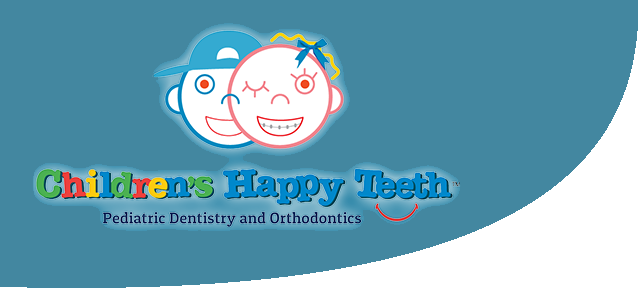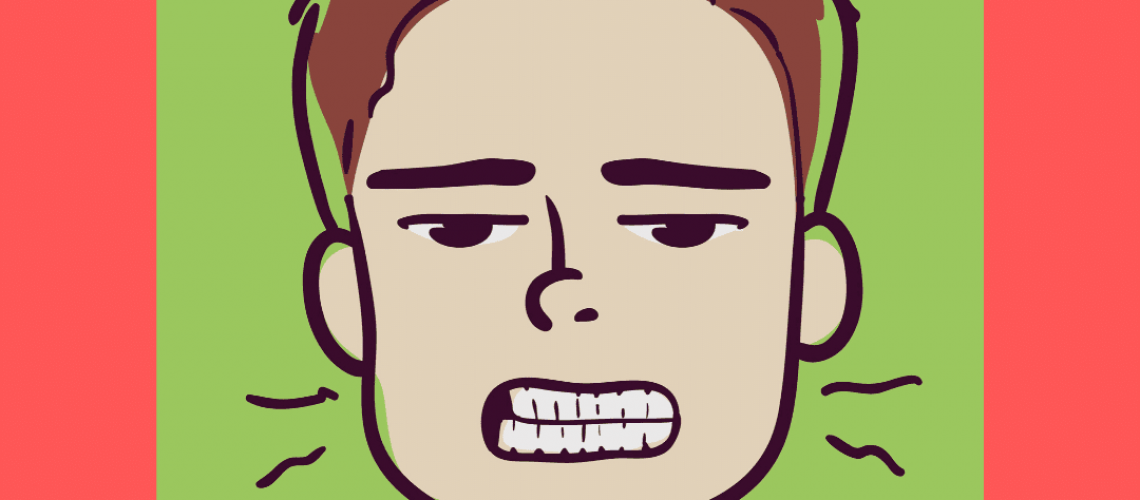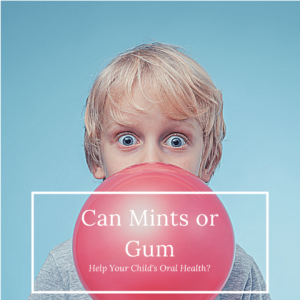Parents, did you know that as many as 7-48% of children grind their teeth in their sleep? Although the exact number is not yet known due to discrepancies in diagnostic criteria, teeth grinding(bruxism) is a common problem dental professionals have observed in children. As a parent, you may be wondering if your child grinds their teeth and how this can affect their oral and overall health. Here are some things you should know about bruxism in children:
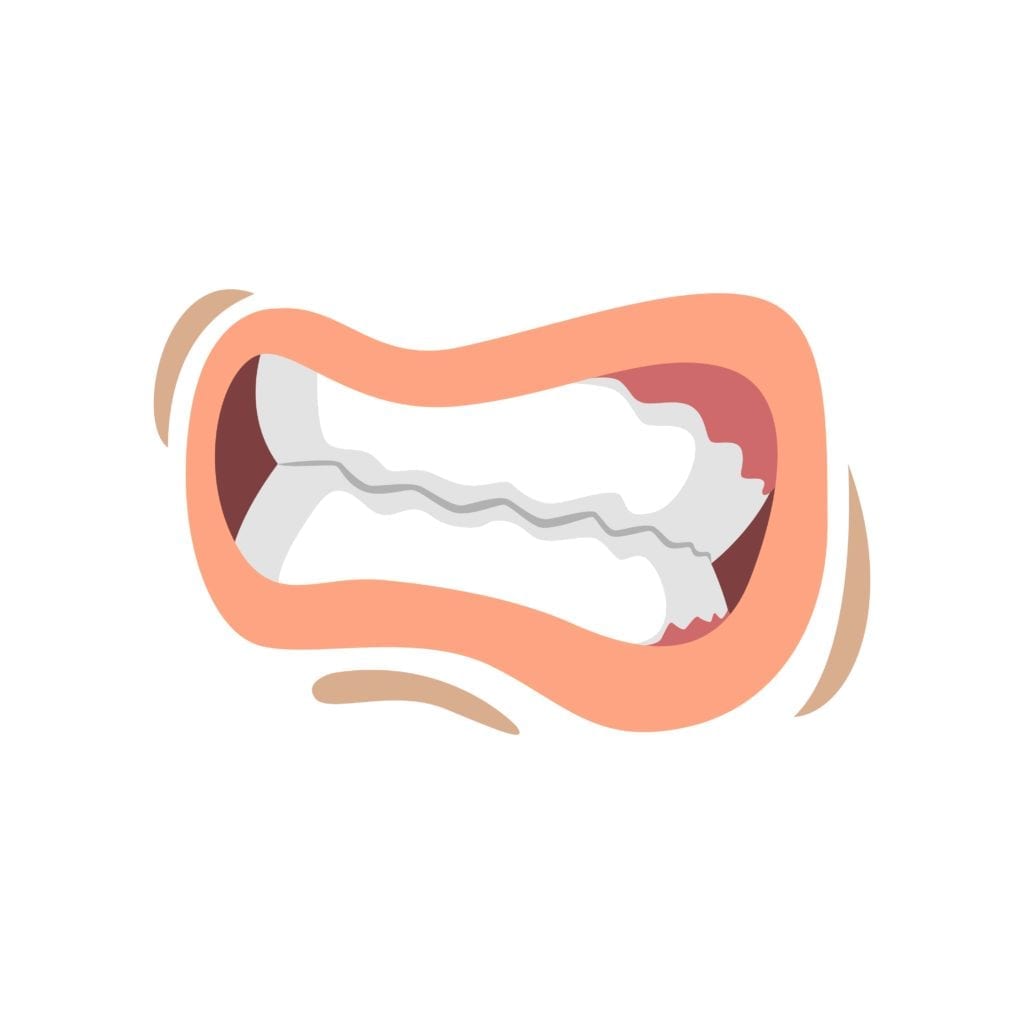
Bruxism in children generally begins between the ages of 4 and 8. The number of children who grind their teeth peaks around ages 10-14, and then drops dramatically after age 14. This is because most children outgrow bruxism around this time.
The exact cause of bruxism in children is unknown, however studies have shown that children who are stressed, hyperactive, or anxious are more likely to grind their teeth at night. In fact, one study notes that children with bruxism are more anxiety prone and tense than those who do not have bruxism. Additionally, the same study found that children on ADHD medication were more likely to grind their teeth.
Another potential cause of bruxism is an uneven bite produced by the mixture of primary and permanent teeth. This is believed to be why bruxism affects children at certain ages and then is eventually outgrown. When the bite is uneven, the body will naturally try to create balance. Since permanent teeth are taller than primary teeth, the body will attempt to grind them down in order to have a uniform bite.
Pain from earaches or teething can be another potential cause of bruxism. When this is the case, teeth grinding is performed as the equivalent to rubbing a sore muscle. However, earaches can also be caused by bruxism, so it can be tricky to determine which is the cause and which is the effect. Generally speaking, if your child has no ear problems, then the pain is likely due to bruxism.
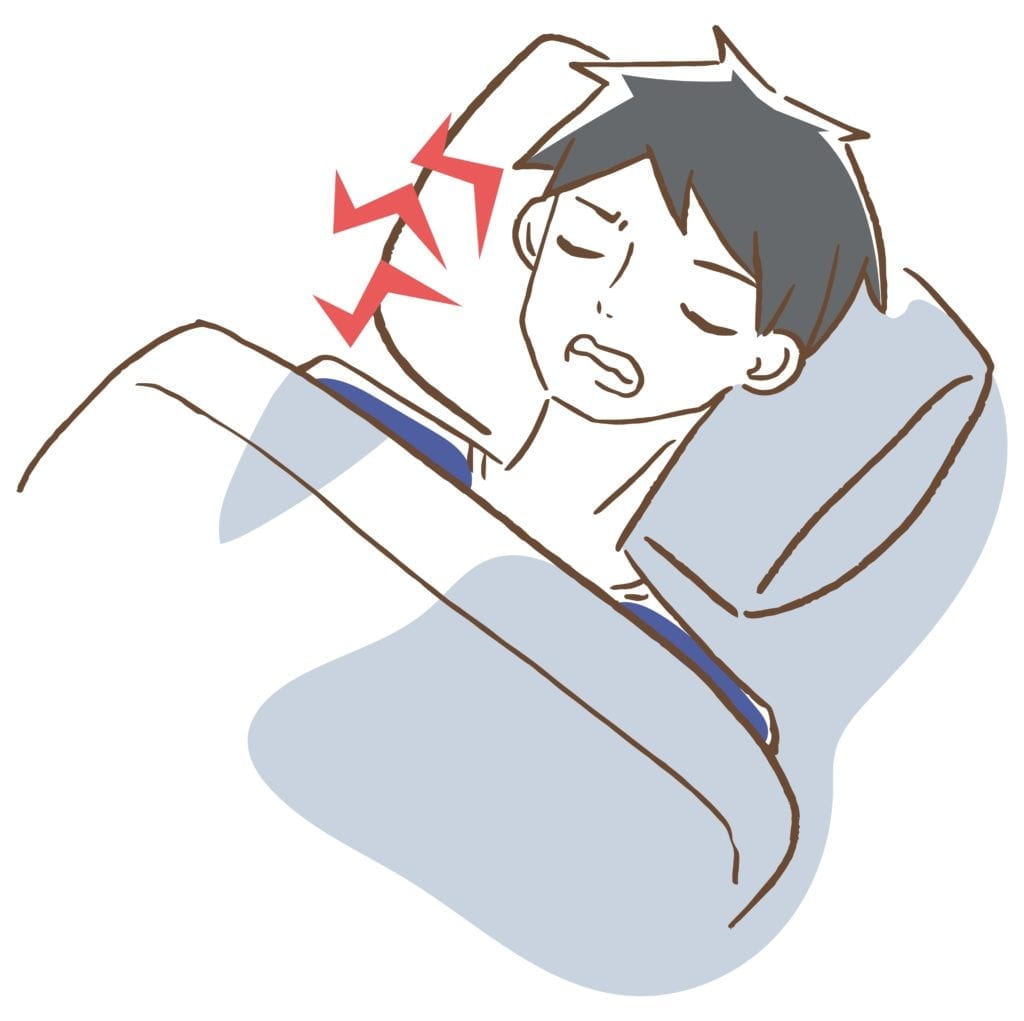
Children who grind their teeth are often unaware of this behavior since it occurs while they are sleeping. However, they may experience symptoms of bruxism such as jaw pain, headaches, earaches, or tooth sensitivity to hot, cold, sweets, and pressure. Additionally, their teeth may also chip, crack, or appear excessively worn.
Parents can determine if their child is grinding their teeth by checking on them periodically throughout the night. To confirm a diagnosis of bruxism, however, an appointment with a pediatric dentist is recommended. Your child’s pediatric dentist will evaluate their teeth for signs of unusual wear and sensitivity to determine if your child has been grinding or clenching their teeth.
The treatment for bruxism in children is partially dependent on what the pediatric dentist believes is causing the problem. For example, an uneven bite may be treated with a nightguard that fits over the teeth, while bruxism due to stress might be treated by practicing relaxation techniques before bedtime.
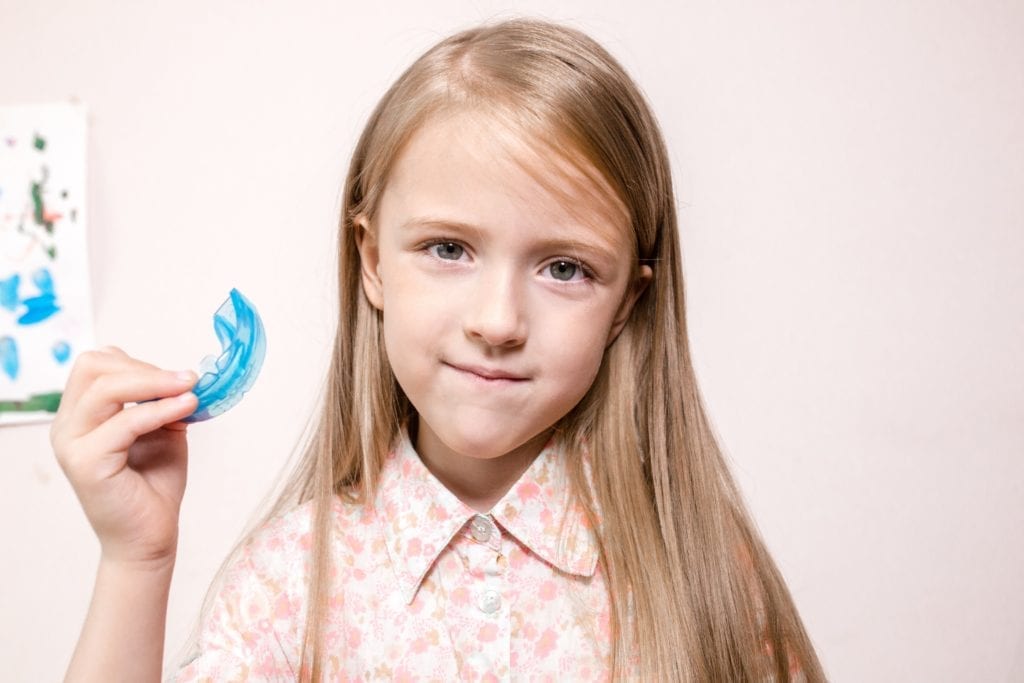
Nightguards are a common treatment for bruxism because they protect the teeth from damage, decrease pressure on the jaw joint, and help relieve painful symptoms caused by grinding or clenching. A nightguard is similar to a sports mouthguard in that it is customized to fit over the teeth. Although it can take a few nights to get used to, it can drastically reduce the frequency of bruxism.
